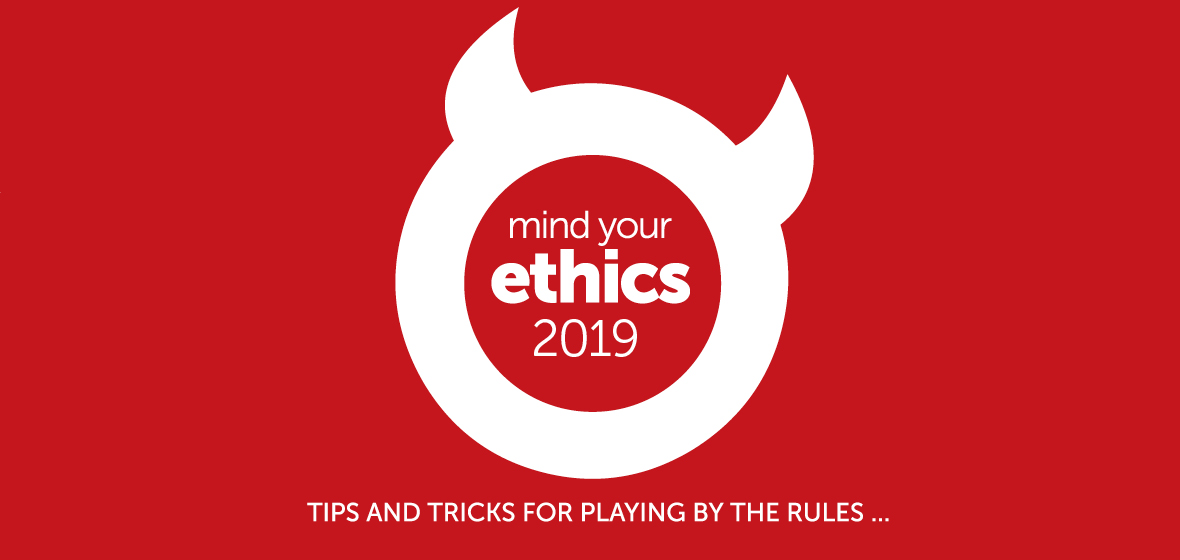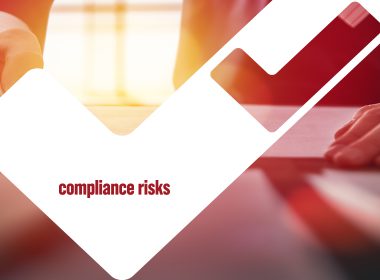A cautionary tale of the Ghost of Christmas Present
By Paul Monaghan, Senior Ethics Lawyer
LSJ Issue 62, December 2019
Lawyers are a superstitious lot; we all believe that things can come back to haunt us.
With eager anticipation of another year of difficult and stressful practice concluding, many now look forward to the pending yuletide festivities.
Opportunity will soon present itself in multi-site celebrations to demonstrate our professional ethics and this will often accompany our great desire to share our social exuberance with the world using various images and comments on social media.
However, as lawyers we have some special considerations to be aware of.
Our professional obligations may be noted by the Australian Solicitors’ Conduct Rules:
- • Ensuring that: “… a solicitor not publish or take steps towards the publication of any material concerning current proceedings which may prejudice a fair trial or the administration of justice …”; and
- Observe the professional standards required to “… avoid any compromise to their integrity and professional independence …”.
At a festive gathering of lawyers, the temptation to post an image or make a comment published in various forms of social media that may touch upon current legal matters may become overwhelming.
Regrettably, the ‘Ghost of Christmas Present’ may appear in many forms to haunt the offender immediately.
When lawyers come together to celebrate, exchange greetings or discuss any current matter, we must carefully note our obligations to ensure such comments “… are not published or takes steps toward the publication of any material” that may breach our ethical obligations.
The ethics department wishes our readers best wishes for Christmas and the New Year.
Back to top
Q: In my local Gloriabucks, as I drink my coffee, I see another solicitor, laptop open, talking on their mobile about court dates. I ponder: “Is doing work at Gloriabucks a good idea?”
By Linden Barnes, Senior Ethics Lawyer
LSJ Issue 61, November 2019
A: There are certainly ethical issues to ponder here. Let us start with the obvious one – confidentiality. Who is overhearing your conversation? Who is overlooking your computer screen?
We sometimes become so focussed on what we are doing that we don’t realise everyone else can share it with us or, indeed, is being forced to do so. Arguably, it is not just a matter of confidentiality but also a matter of courtesy, too. Other patrons want peace, if not quiet.
Another aspect of confidentiality is wi-fi. If we use it, we have to be so aware of the confidentiality/security perils. It is our obligation – not the café’s – to ensure our systems are secure. Some jurisdictions require technological competence of solicitors. It is probably not necessary for our conduct rules to be so specific – the rules of confidentiality and general competence are broad obligations that cover the situation.
If you need to increase your competence, the Law Society’s FLIP initiatives on embracing technology are there to help.
We act in our clients’ best interests. While it is arguably in their best interests to have a happy, sufficiently caffeinated solicitor, that doesn’t extend to risking their confidentiality.
Enjoy your coffee, but leave Gloriabucks to the students as a workplace.
Back to top
Q: What do we do when we’re blamed for making a mistake? What are our obligations?
By Paul Monaghan, Senior Ethics Lawyer
LSJ Issue 60, October 2019
A: Success has many parents, yet failure is an orphan, especially in law. So who to blame when things go wrong?
An almost perverse glee is elicited when someone else gets the blame, but what happens when it’s you?
Playing the blame game is destructive, in particular for the interests of the client and your duties to the court. When someone has a ‘poison file’, is it proper to pass it on to some unsuspecting junior?
“You have to be thrown in the deep end to learn. That is how it happens here, so stop complaining,” say many who would do such a thing. This yields many a nightmare and happens regularly in law firms. No instruction, no time, and maybe a brief post-it note with an initial of authority as the only form of communication.
We should note our obligations in Rule 4 of the Australian Solicitors’ Conduct Rules: “… A solicitor must act in the best interests of a client in any matter … be honest and courteous in all dealings in the course of legal practice … deliver legal services competently, diligently and as promptly as reasonably possible …”.
The court requires every solicitor appearing to have knowledge of the matter at hand and to be armed with instructions to allow appropriate directions and orders to be made. This is to ensure the court is not inconvenienced, costs are minimised, and time is not wasted. Senior practitioners should ensure all matters have been prepared and the solicitor allocated a file has had time to be proficient in the presentation of it.
Blame does not work. Constructive procedures to ensure a team works well and the best possible outcome is achieved should be the ultimate goal of every law firm and in-house practice.
Back to top
Q: With all this new technology, new laws and new issues, don’t our conduct obligations need an update?
By Linden Barnes, Ethics Lawyer
LSJ Issue 59, September 2019
A: Those of us who were at the FLIP conference held in Sydney on 25 July were taken on a journey into a future of amazing technologies. We were surrounded by robots and AI. We were confronted with the “uberisation” of legal services.
On page 30, we have an indepth analysis of the new modern slavery laws. How accurate is the idea that slavery is Gone with the Wind?
And then there’s the issue of national security and freedom of the press (see p 36) – appropriately a topic for discussion in the press.
So, do our conduct obligations need updating in the face of all this novelty?
Our conduct obligations do date from ages past, but they have proven to be timeless by their applicability to whatever confronts the solicitors in each of those ages. The introduction of the telephone didn’t change the need to be courteous or to maintain confidentiality. It just broadened the scope for breaching the obligation.
The laws creating the various courts that we have today didn’t change our obligation to uphold the system of justice above all other obligations. And while heads rolled for alleged treason against the Crown (the real person, not the internet streaming one), we solicitors were always obliged to behave in a way that didn’t bring our profession into disrepute.
So, no, our obligations don’t need an update. We’re the ones who need to keep updating with all the changes, but on a secure foundation of those obligations.
Back to top
Q: Dealing with the office bully: what are our professional obligations?
By Paul Monaghan, Senior Ethics Lawyer
LSJ Issue 58, August 2019
A: Lawyers are a competitive lot and like to work hard and party hard. Nothing wrong with that, but what happens when competition and the pressure of work take a sinister turn and you or a colleague get picked on, harassed or bullied?
At a CPD session I once stated boldly: “Let us ensure we act like professionals – be honest and courteous in all dealings in the course of legal practice, ensure that you do not threaten, intimidate or bully other solicitors or parties …”.
The response was noteworthy as one participant said: “What is left for us to practice law with?”
This illustrates a major problem with the culture of some law firms. The legal profession attracts the brightest and best people, yet in a small minority of cases it has become a haven for the psychopath and degenerate. Many solicitors have taken an interest in psychology merely to identify what particular personality disorder a member of staff or opposing counsel may be suffering from.
In addition to conducting an office guessing competition regarding personality types, it should be noted that every bully is a coward and the psychopath will always crawl back under their own dark rock when the light of truth shines upon them.
With regard to the topic of how we should treat others, it is prudent to remember our professional obligations that are stated in our Solicitors’ Rules and to observe the professional standards required with regard anti-discrimination, harassment and bullying: “A solicitor must not in the course of practice, engage in conduct which constitutes discrimination, sexual harassment, or workplace bullying.”
Also, the issue of ‘bullying by proxy’, which is a favorite pass-time of some who mistakenly believe the bullying of a staff member through the calculated manipulation of other staff to do their bidding, is a source of unending amusement. They are warned that such behavior may result in a complaint of professional misconduct.
At the recent launch of the International Bar Association report, “Bullying and sexual harassment in the legal profession”, the issue of bullying within the legal profession was recognised as a significant problem and should never be tolerated within the legal profession. A simple rule should be applied for successful practice by every solicitor: “Good manners and common sense in all matters.”
Regrettably, these desired traits are not always that common. Good luck in practice.
Back to top
Q: I am very concerned about a friend at work. I know they are going through some difficult times at home, but now they have come in with significant bruises because they “walked into a door”. What can I do?
By Linden Barnes, Ethics Lawyer
LSJ Issue 57, July 2019
A: Of course you want to support your friend, but it is very important here to think of their best interests before you leap in. It is probably not in their best interests for you to turn into their lawyer.
For most of us, we simply don’t have the expertise in this area of law (or the practising certificate).
Acting for them could make it worse. We would be failing our obligation under Conduct Rule 4 to “deliver legal services competently”.
Would we be able to act with “professional independence”, again as required by Rule 4? As someone recently said to me, acting for a friend means the professional relationship starts on the wrong basis.
And we could well end up as a witness. Rule 27 sets out the restrictions on acting when in that position.
So, what can we do? We can still help. We could suggest they get advice and recommend a solicitor who would suit.
The Law Society has a referral service – a most useful resource. And maybe giving them the contact details of our support services such as Lifeline for Lawyers, Law Care or the Lawyers Assistance Program.
It is important that we are all aware of these support services – we never know when we or a friend might need them.
Looking out for our fellow solicitors is a vital part of our profession.
Hopefully, we won’t have this situation, but being prepared if we do could make such a difference.
Back to top
Q: I have noticed a fellow solicitor misrepresenting their qualifications on LinkedIn. What should I do?
By Linden Barnes, Ethics Lawyer
LSJ Issue 56, June 2019
Before we emulate a volcano building up to an explosion, perhaps we should reflect on what our obligations to the court, clients and other members of the profession entail. Rarely have I heard a lawyer accuse another of being too polite or courteous, yet this is a fundamental duty upon every practitioner.
What are our obligations when dealing with others?
It should be carefully noted by all practitioners that “A solicitor must act in the best interests of a client in any matter in which the solicitor represents the client … and be honest and courteous in all dealings in the course of legal practice …” (Solicitors rule 4).
At the commencement of each year, many practitioners will consider how to promote their legal practice and how they may “make a name for themselves” to become well known amongst clients and their professional colleagues.
That is quickly established by doing something unethical or discourteous to the court, client or other legal practitioners. You will never be forgotten and always remembered, but for all the wrong reasons.
Worse still, disciplinary proceedings may also be taken against you that may tarnish your reputation permanently.
Honest and courteous behavior does work. Consider the true nature of legal persuasion as per suasio, or via sweetness, in all dealings in the course of legal practice.
A good name is the most important asset a legal practitioner may have and should be wisely protected. Success in law is achieved by the most ethical.
Back to top
Q: There have been a number of times while travelling on public transport that I have overheard a solicitor speaking loudly about apparently confidential matters on the telephone. What are our obligations when travelling or in public?
By Paul Monaghan, Senior Ethics Lawyer
LSJ Issue 55, May 2019
A: Solicitors must exercise caution when contemplating any communication. This quote should be remembered: “There is a time and a place for everything … however, this is neither the time nor the place.”
The temptation to speak of a matter due to urgency and using whatever means of communication available must be in the context of maintaining the professional standards of confidentiality that apply to every lawyer. When undertaking any form of communication the guide to our professional obligations may be noted in Rule 9 of the Solicitors Rules:
- The fundamental duty on a practitioner to: “not disclose any information which is confidential to a client and acquired by the solicitor during the client’s engagement to any person who is not:
- 9.1.1 a solicitor who is a partner, principal, director, or employee of the solicitor’s law practice, or
- 9.1.2 a barrister or an employee of, or person otherwise engaged by, the solicitor’s law practice or by an associated entity for the purposes of delivering or administering legal services in relation to the client, avoid any compromise to their integrity and professional independence …”; and
- To observe the professional standards required and ensure that you must not:
- “… disclose any confidential information … in a crowd of fellow passengers in a train, bus, ferry or footpath …” by any action or statement.
When lawyers wish to communicate in any form they need to ensure it is in a confidential setting and by appropriate confidential means. If you receive a call on your mobile only speak when you have a private and confidential setting.
Back to top
I am a high performer at work but feel like I am constantly slogging it out and making no headway. Is there something in the professional rules that I can use to explain to my boss that the quality of my work will suffer if my team is under-resourced and our deadlines are unrealistic?
By Linden Barnes, Senior Ethics Lawyer
LSJ Issue 54, April 2019
This is such a common situation – a solicitor at the point of burnout still thinking of their client. I am constantly amazed how the solicitors who call the ethics line are battling on for clients despite the personal impact. They are overworked and underpaid and even abused for their efforts. Why doesn’t the headline in the paper scream, ‘Lawyers – our unsung heroes’? It certainly should.
But while it is admirable, it is also dangerous to our health and therefore to our clients. We must “deliver legal services competently, diligently and as promptly as reasonably possible … in the best interests of a client” (Conduct Rule 4). That is not possible if we are burnt out. It has financial, professional and health implications.
Take care and may you never need to explain these implications to any fellow solicitor, boss or otherwise.
Back to top
I am considering an in-house position with a multi-national corporation with a reputation for having a shrewd commercial culture. What advice do you have for counsel whose job it is to negotiate the interests of their company (and client) against their duty to the profession?
By Paul Monaghan, Senior Ethics Lawyer
LSJ Issue 53, March 2019
Joining the big corporation, with great expectations of a high profile career that promises a fast track to success and recognition, it is important to remember the professional standards of every lawyer.
Balancing a duty to the court, the client and the profession is not an easy task and is made more difficult by the ‘culture’ of the corporate client. Recent history shows a cautionary tale “… when you act as lawyer… be a lawyer and make no compromise to your ethical standards”.
In such a situation, when dealing with other practitioners the guide to our professional obligations may be noted in:
- The fundamental duty on a practitioner to:
- “… avoid any compromise to their integrity and professional independence …”; and
- To observe the professional standards required and ensure that you must not:
- “… use tactics that go beyond legitimate advocacy and which are primarily designed to embarrass or frustrate another person …” by any action or statement.
When lawyers desire success and believe they need to make ‘a name’ for themselves, it is sad to observe lawyer act unethically “… as they will never be forgotten for it …”. That is ‘a name’ you do not want to have. Act ethically and protect your good name no matter where you go, it is the only asset a lawyer really has.
The ethics department welcomes enquiries on ethics matters with a growing increase in number from those who practice as in-house lawyers. The complexities of this specialized area of legal practice often require discussion and guidance. This is available from the ethics department, our online services and by written guidance from our ethics committee. We look forward to hearing from you.
Back to top
Happy New Year! Here’s my ethical wish list for the year ahead:
By Linden Barnes, Senior Ethics Lawyer
LSJ Issue 52, February 2019
1. Rule 42 and #MeToo will be unnecessary.
I was asked to write on the ethical implications of the following scenario: “My managing partner consistently makes lewd and inappropriate remarks about my choice of clothes, always out of earshot of others. The comments seem too trivial to raise with HR but make me feel uncomfortable and demeaned.”
May it be that soon there will be no need to write about that sort of scenario because no one will behave like that anymore?
2. Everyone does their CPD well before 31 March.
How good would it be if, as we cleared our desks for Christmas, we could tick that off the list. A word of warning: 31 March is a Sunday this year and may not be the easiest day to obtain CPD, or to get help if that webinar you bought doesn’t stream properly.
3. There is no diminishing courtesy between practitioners.
I personally don’t really experience it, but I am told about it. Unsurprisingly, solicitors who call the Ethics Hotline generally are ethical and courteous – they get it. I would love to have a simple solution to discourtesy, but there are some actions that do help. First is our own level of courtesy and thinking of the recipient – how they might understand what we say. Second is grasping all opportunities we have for collegiality, whether it be a regional law society event or a helping hand to an opposing solicitor.
4. That I do myself out of a job.
No, I enjoy what I do too much, so keep those ethical conundrums coming!
I look forward to catching up with many of you over the next weeks as the Ethics Department tours the state with our Ethics Roadshow.




